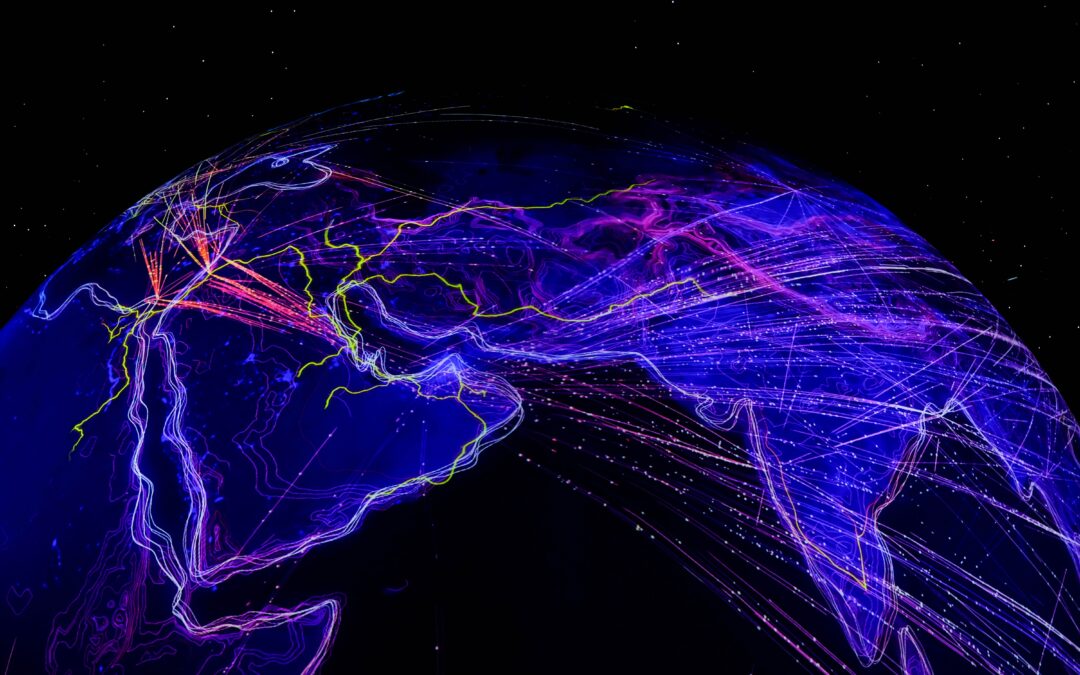The Center for Effective Philanthropy (CEP) works with funders all over the world, including dozens of grantmakers headquartered in Europe. Recently, CEP joined the Philanthropy Europe Association (Philea), an association of philanthropic funders and infrastructure organizations in Europe. I had the chance to share a few questions with Delphine Moralis, CEO of Philea, recently, and get her take on some of the key issues in philanthropy we often think about at CEP, as well as hear about what Philea has been up to and talk about opportunities for cross-Atlantic collaboration.
Chloe Heskett: Can you tell us a little bit about Philea? What role do you play in the European philanthropic sector?
Delphine Moralis: Philanthropy Europe Association — Philea — is a Brussels-based membership organisation comprised of individual philanthropies and national-level infrastructure organisations from more than 30 countries.
A metaphor we like to use for the European philanthropic sector is that of a forest — an almost limitlessly diverse ecosystem comprising of all shapes and sizes of organisation. We see our role as making sure that the soil which nourishes that ecosystem is as healthy as it can be to help our members thrive and grow, and for the sector as a whole to benefit. Our vision, mission and 5-year strategic framework, approved earlier this year, provide a roadmap to do just that.
CH: I know Philea recently hosted its annual forum — what were some of the key topics of discussion there? How do those fit into current trends or challenges you are seeing in philanthropy in Europe right now?
DM: Amid the wide-ranging conversations that took place across the conference over three days in Croatia at the end of May, several concepts consistently surfaced:
- Firstly, in the contexts of the climate crisis and the war in Ukraine, the importance of supporting democracy was prominent — not just in two dedicated sessions, but across several others — from discussions on the enabling philanthropy with policymakers, to how creativity and the arts can and should be intrinsic to rethinking and strengthening democracy. We witnessed many foundations acknowledging the insufficiency of solely focusing on political risks, considering the escalating threats to democracy worldwide. The urgency for effective measures has ignited a transformative shift within foundations, propelling them to surpass the confines of neutrality and embrace their pivotal role in safeguarding and advancing democracy.
- The importance of evolving the relationship between funders and their partners was ever-present and the significance of transforming the dynamics between funders and their partners was palpable. The discussions touched upon vital aspects such as power sharing, providing organisational development support, and embracing the concept of decolonisation. This recognition underscored the need for fostering equitable collaborations, nurturing growth within organisations, and dismantling oppressive structures.
- The importance of unrestricted funding: According to UK-based Institute for Voluntary Action Research’s 2023 report ‘Making the case for unrestricted funding: A summary of key points for foundation staff and Boards‘ 88 percent of grantees agreed that ‘giving us unrestricted funding — money that we can spend on anything within our charitable objects — would make a huge difference to our ability to respond to changing circumstances and the things that matter most to our community/cause.’ Moreover, the Philea Forum shed light on the paramount importance of unrestricted funding as a catalyst for transformative impact and the cultivation of more equitable and collaborative ecosystems. It was evident that unrestricted funding played a pivotal role in various aspects, such as fostering the development of healthy and sustainable organisations, preventing burnout among grantee partners, and driving systemic change, cultivating balanced, non-top-down relationships between funders and partners.
- And finally, human rights, justice, and equality were named as essential elements of solutions to each and every one of the crises Europe and the world are facing now. In acknowledging the multitude of concurrent crises, it became resoundingly clear at the conference that these three values were intrinsic elements within the solutions required. Participants recognised that these fundamental principles by placing them at the forefront, a comprehensive approach could be fostered, one that not only tackled immediate challenges but also laid the groundwork for sustainable and inclusive solutions.
CH: In our work at CEP, we often talk about trust-based philanthropy. Is this a prominent topic in European philanthropy? Can you share some insight into how it is thought of, or approached? Are there any particular challenges in the European context?
DM: Absolutely, and going back to the second and third points I made above regarding the Philea Forum threads: throughout those days, delegates were clearly looking for new ways to engage in participatory grantmaking, address power imbalances, and really listen to their partners. When delegates were asked at the opening plenary what the top priority for philanthropy should be, they placed “trust-based giving, participatory approaches, and flexible funding” at the top, and this was again echoed across the sessions.
While trust-based philanthropy resonated strongly with the participants, it was also acknowledged that the European landscape poses specific challenges, such as navigating diverse legal and cultural frameworks, establishing long-term trust in a constantly evolving sector, and addressing power imbalances inherent in traditional philanthropic structures. These discussions emphasised the need for ongoing dialogue, collaboration, and innovative approaches to fully realise the potential of trust-based philanthropy in the European philanthropic ecosystem.
CH: There is a lot of discussion of “bridging divides” and “coming together across differences” in the U.S. philanthropic sector. As polarization and divisions continue to grow in Europe, too, to what extent is there space for funders who may have very different approaches or viewpoints to collaborate and share values? Is that a core value for Philea?
DM: As the philanthropic sector in Europe grapples with increasing polarisation and divisions, there is indeed a pressing need to create space for funders with diverse approaches and viewpoints to collaborate and share values. Efforts to deepen and diversify membership within the European ecosystem reflect a commitment to ensuring representation and inclusivity. However, it is crucial to strike a balance between expanding membership and upholding core values. While fostering a diverse membership, it is imperative that all members adhere to the Philea values of trust, collaboration, transparency, innovation, inclusion, and diversity, as well as principles of good practice. So, in short, yes to embracing a multitude of diverse views, yes to disagreeing and bringing different ideas to the table, yes to engaging different voices from within the broad philanthropic spectrum, but always with a vision anchored on philanthropy’s potential to co-shape and support a pluralistic, just, and resilient society that centers people and planet.
Within Philea’s Democracy Network, as an example, ongoing explorations are taking place on the topics of public dialogue, engagement with differing perspectives, and the role of funders in bridging divides and fostering pluralism. These discussions serve as a platform for sharing practices, learnings, and challenges among network members. By actively exchanging insights and experiences, the network aims to deepen its understanding of how to facilitate open and healthy conversations.
CH: In your opinion, what are the opportunities for greater collaboration between U.S. and European philanthropic sectors?
DM: There is immense potential for greater collaboration, particularly in addressing global challenges. Recognising the interconnected nature of these issues, opportunities abound for joint efforts that leverage resources, expertise, and perspectives from both sides of the Atlantic. Whether it be addressing climate change, advancing social justice, or promoting equitable access to healthcare and education, by combining their respective strengths, knowledge, and networks foundations can tackle complex global challenges more effectively.
Indeed, there is a history of collaboration between the philanthropic sectors in the United States and Europe. One recent example was the joint session we organized with Council on Foundations, Community Foundations of Canada, Philanthropic Foundations Canada, Charles Stewart Mott Foundation, the German Marshall Fund of the United States, and the European Community Foundation Initiative, which focused on the philanthropic response to the war in Ukraine. The session led to the development of a joint declaration, highlighting the shared commitment of philanthropic actors from both sides of the Atlantic to support peace, stability, and reconstruction efforts in the region. Examples like this illustrate the potential of cross-border collaboration, where philanthropic sectors from the United States and Europe join forces to address specific issues, exchange best practices, and develop shared strategies. There are also some important conversations going between U.S. and EU funders on International Cooperation… but that’s a topic in itself for another piece!
I think that there are great opportunities for more meaningful collaboration on complex global challenges, and I also think European and U.S. philanthropy can also agree to complement each other’s work in terms of power-shifting and decolonialisation of philanthropy, from integrating diversity, equity, and inclusion perspectives in their work to efforts of reparations and compensations of harm caused.
Chloe Heskett is an editor and writer on the programming and external relations team, CEP. Find her on LinkedIn. Delphine Moralis is the CEO of Philea. Find her on LinkedIn and follow her on Twitter and find Philea on LinkedIn and Twitter.


